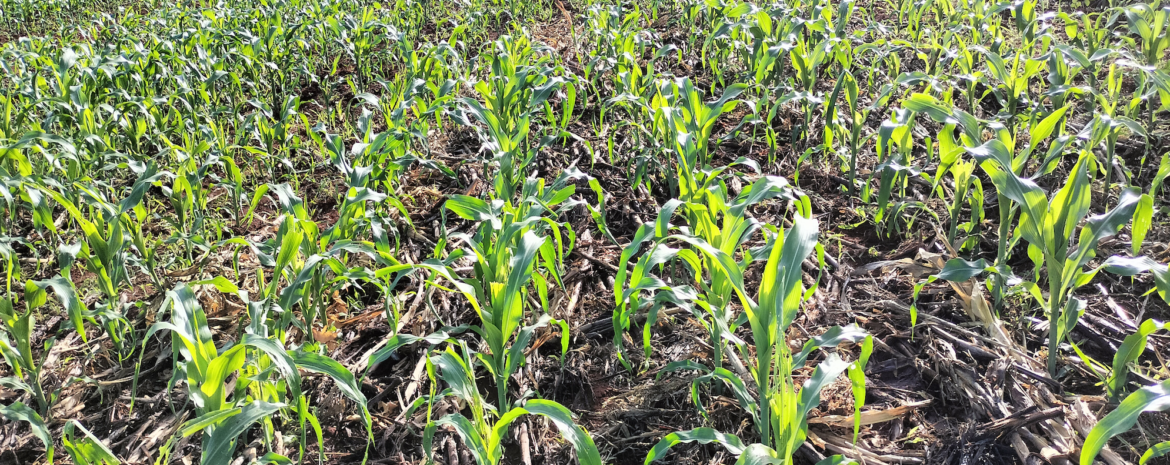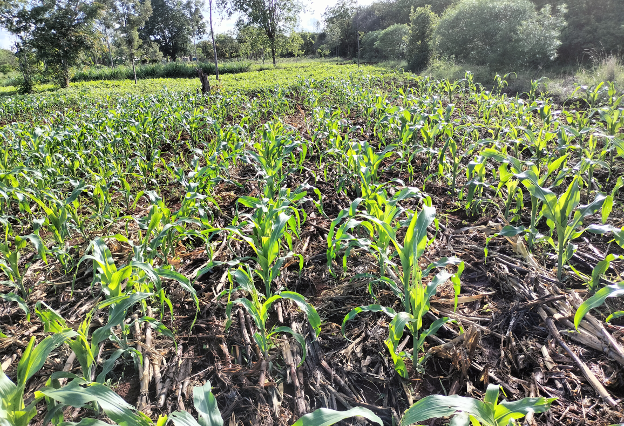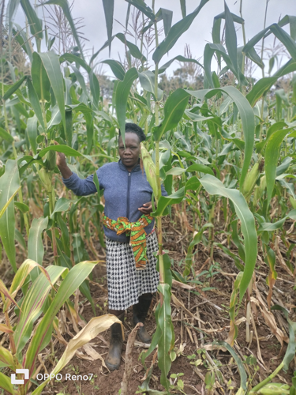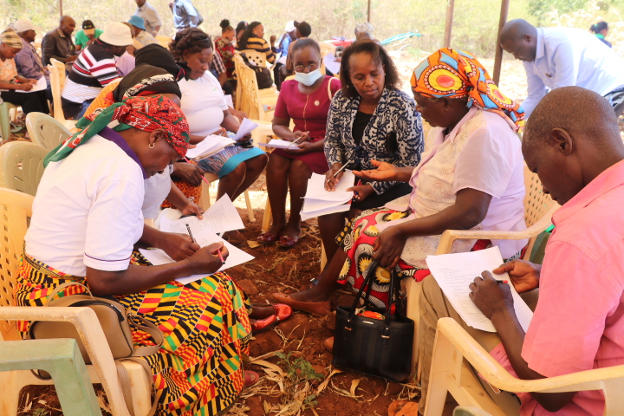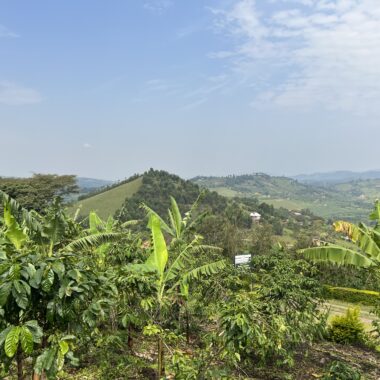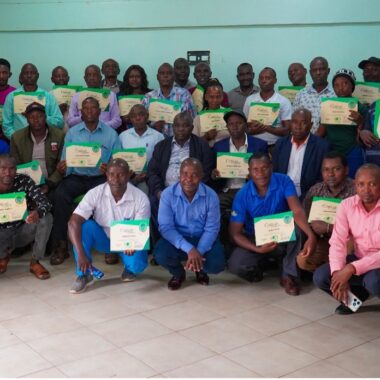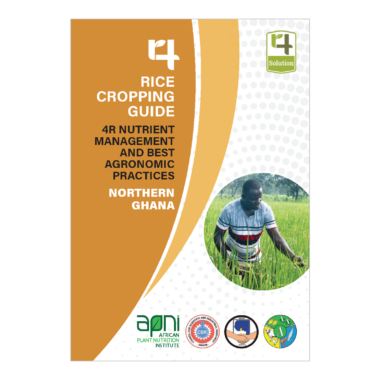On-farm experimentation identifying better fertilizer + soil moisture management options for maize in eastern Kenya
The on-going #APNRF project on Fine-tuning Climate-Smart Nitrogen Management Practices in Maize-based systems in Eastern Kenya is, in part, working to validate and promote best management practices for soil moisture conservation and N use efficiency through a farmer-centric, on-farm experimental (OFE) approach further supported by on-station experimentation. The OFE approach is farmer-driven, whereby scientists work with farmers to select treatment variables of interest. In this way farmers are central to the experimental process as a management variable is tested, relevant measurements collected and analyzed, and outcomes are openly discussed with the aim to stimulate evidence-based learning and decisions.
Project lead, Dr. Onesmus Kitonyo, Department of Plant Science and Crop Protection, University of Nairobi, finds the OFE approach to be producing remarkable results in terms of farmers’ participation in steering the research into unique directions.
For example, experimental evidence of the benefits gleaned from the incorporation of crop residue as a moisture conservation strategy has generated a consensus amongst participating farmers for the adoption of the strategy moving forward.
There are, however, seasonal trade-offs to consider while crop residues are allocated to competing uses on-farm. Results show comparable yields to surface mulched crops in plots receiving soil conditioners (hydrogels) that work to conserve soil moisture in the active rooting zone of crops by reducing evaporation, deep percolation, and runoff losses. On-station, the use of plastic film mulch significantly increased maize yield compared with the other soil moisture conservation treatments, and differences were more noticeable under drier, short rain season conditions.
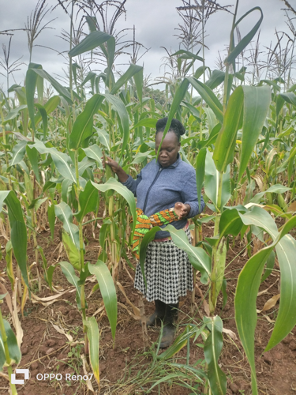
Farmer Pauline Njeru inspecting maize plots receiving the hydrogel soil conditioner (top) and crop residue mulch (3 t/ha) (bottom).
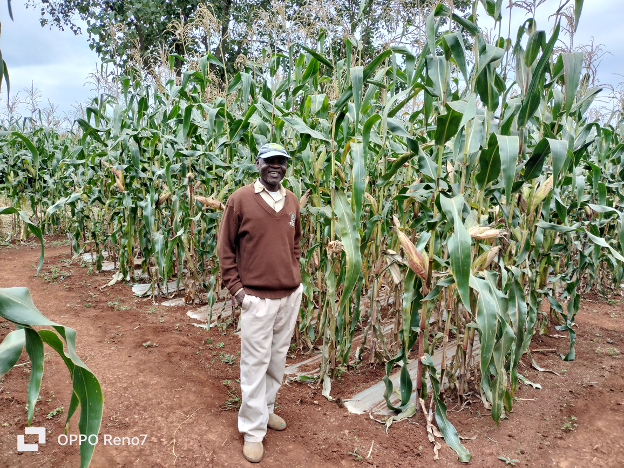
Farmer Andrew Mureithi visiting the on-station experiment at KALRO Embu, with plastic film mulch installed.
“Maize-based systems of Embu are nutrient constrained but are predominantly moisture deprived and yield is a function of a strong inter-play between water and nutrients,” – Project Lead Dr. Onesmus Kitonyo
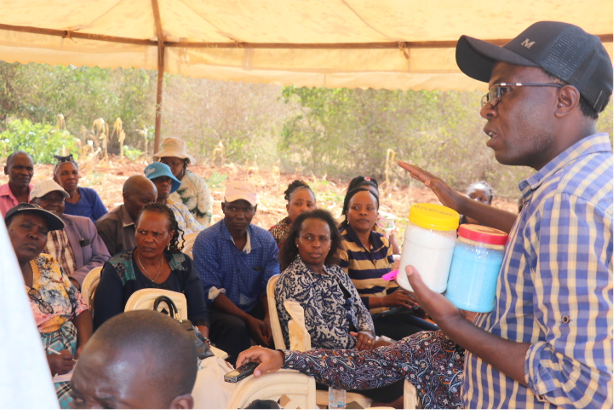
Angela Gitonga, APNI Agronomist discussing management options with farmers (top image) and Project Lead, Dr. Kitonyo engaging farmers during pre-harvest dialogue at Pauline Njeru farm in Muchonoke village (bottom image).
Moving into the short rain season for 2023 and the 2024 long rain seasons, Dr. Kitonyo looks forward to continuing the engagement process with participating farmers. During the pre-harvest farmer dialogues, the project has also received positive feedback from farmers who had not earlier interacted directly within the project. Some of these farmers have requested to be enrolled in the project, and to be involved in the project activities such as sowing, fertilizer application, among other activities.
Learn more about this project and others supported by the African Plant Nutrition Research Fund

